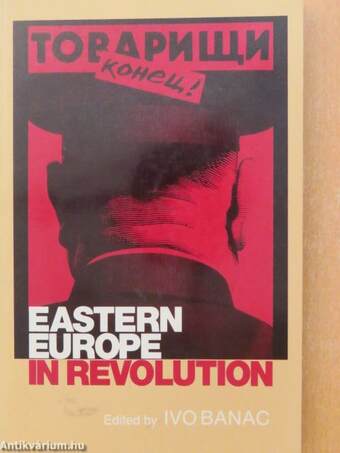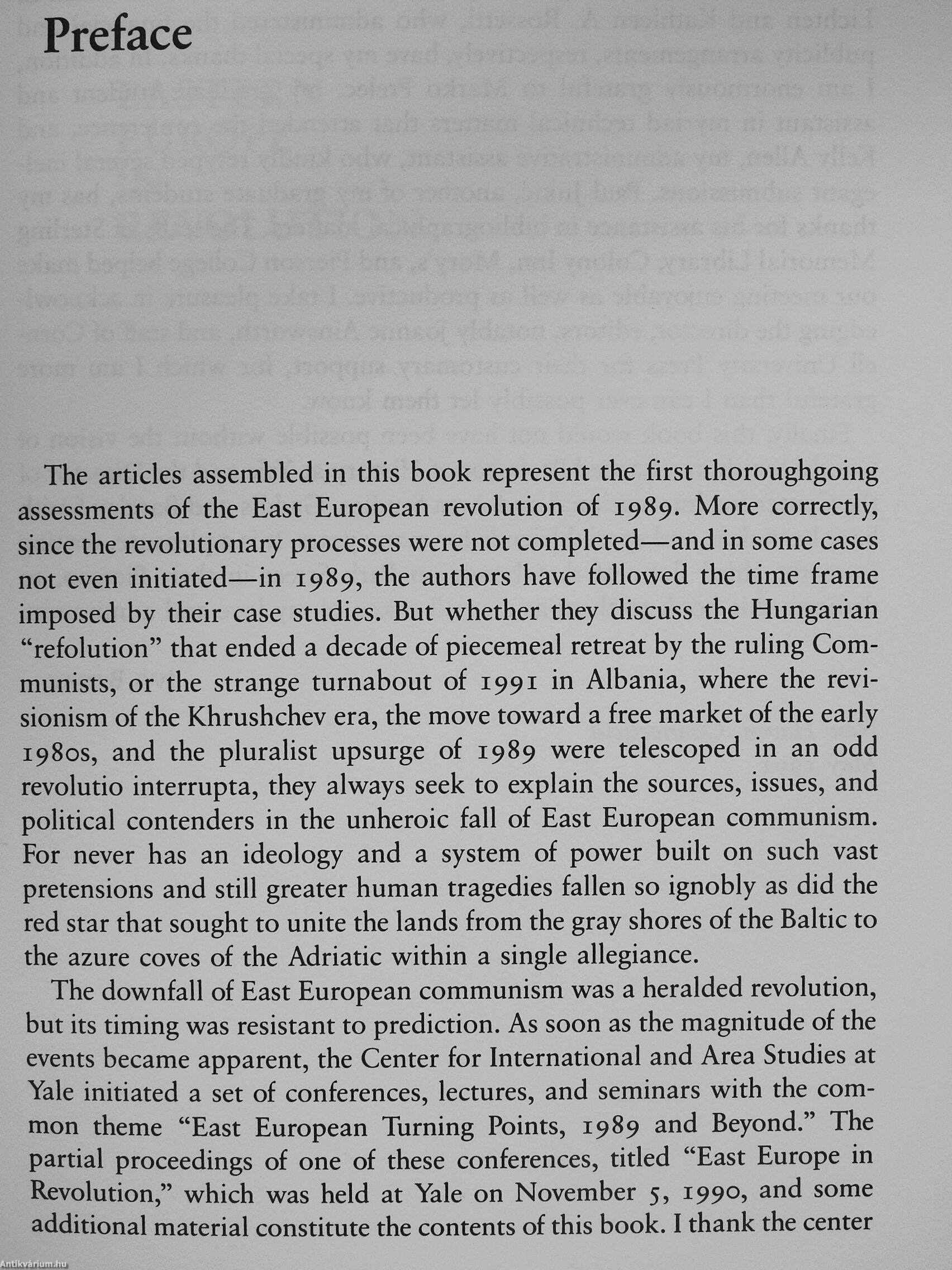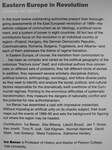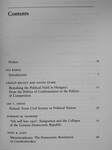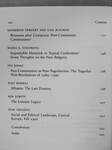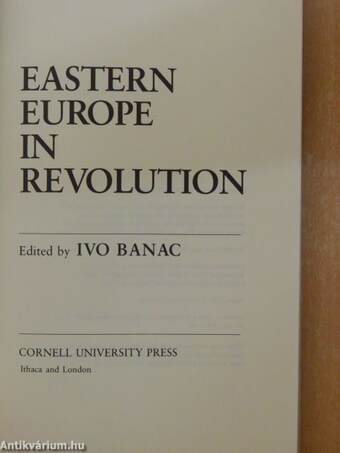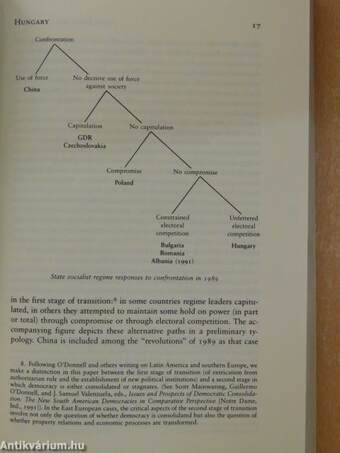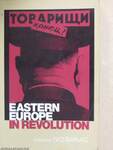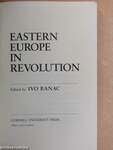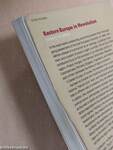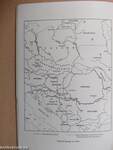1.067.669
kiadvánnyal nyújtjuk Magyarország legnagyobb antikvár könyv-kínálatát

VISSZA
A TETEJÉRE
JAVASLATOKÉszre-
vételek
Eastern Europe In Revolution
| Kiadó: | Cornell University Press |
|---|---|
| Kiadás helye: | Ithaca-London |
| Kiadás éve: | |
| Kötés típusa: | Ragasztott papírkötés |
| Oldalszám: | 255 oldal |
| Sorozatcím: | |
| Kötetszám: | |
| Nyelv: | Angol |
| Méret: | 23 cm x 15 cm |
| ISBN: | 0-8014-9997-6 |
| Megjegyzés: | További szerzők a műben. Fekete-fehér ábrákkal. |
naponta értesítjük a beérkező friss
kiadványokról
naponta értesítjük a beérkező friss
kiadványokról
Előszó
TovábbFülszöveg
Eastern Europe in Revolution
In this book twelve outstanding authorities present their thoroughgoing assessments of the East European revolution of 1989—the definite collapse of communism as an ideology, a political movement, and a system of power in eight countries. All but two of the contributors focus on the revolution in an individual country or region—Poland, Hungary, the German Democratic Republic, Czechoslovakia, Romania, Bulgaria, Yugoslavia, and Albania—and each of them addresses the theme of regime transition.
In Eastern Europe, of course, the transition from communism to . has been as complex and varied as the political geography of the notorious "fracture zone" itself, and individual authors thus concentrate on different sets of problems; they tell different kinds of stories. In addition, they represent several scholarly disciplines (history, political science, anthropology, sociology), and follow diverse paths as they seek to identify and analyze the social,... Tovább
Fülszöveg
Eastern Europe in Revolution
In this book twelve outstanding authorities present their thoroughgoing assessments of the East European revolution of 1989—the definite collapse of communism as an ideology, a political movement, and a system of power in eight countries. All but two of the contributors focus on the revolution in an individual country or region—Poland, Hungary, the German Democratic Republic, Czechoslovakia, Romania, Bulgaria, Yugoslavia, and Albania—and each of them addresses the theme of regime transition.
In Eastern Europe, of course, the transition from communism to . has been as complex and varied as the political geography of the notorious "fracture zone" itself, and individual authors thus concentrate on different sets of problems; they tell different kinds of stories. In addition, they represent several scholarly disciplines (history, political science, anthropology, sociology), and follow diverse paths as they seek to identify and analyze the social, political, and cultural factors responsible for the dramatically swift overthrow of the Communist regimes. Pointing to the enormous difficulties of systematic transformation, they measure the dangers of nationality conflict and the potential for new authoritarianism.
Ivo Banac has assembled a cast with impressive credentials. Without imposing an artificial unity on its chaotic subject, their book maps out the events of 1989-90 and sets the background for figuring out where the region may be headed.
Contributors: Ivo Banac. Elez Biberaj. László Bruszt. Jan T. Gross. Ken Jowitt. Tony R. Judt. Gail Kligman. Norman Naimark. David Stark. Ivan Szelenyi. Maria Todorova. Katherine Verdery.
Ivo Banac is Professor of History and Master of Pierson College, Yale University. Vissza
Témakörök
- Idegennyelv > Idegennyelvű könyvek > Angol > Történelem > Európa története > Magyarország története
- Idegennyelv > Idegennyelvű könyvek > Angol > Történelem > Európa története > Egyéb
- Történelem > Idegennyelvű > Angol
- Történelem > Magyarország története és személyiségei > Magyarország a XX. században > A II. világháború utáni Magyarország > Rendszerváltás > Egyéb
- Történelem > Politika > Belpolitika > Egyéb
- Történelem > Kontinensek szerint > Európa, európai országok története > Kelet-Európa > Egyéb
- Történelem > Legújabb kor > A hidegháború kora (1946-1991)
- Történelem > Politika > Politikai rendszerek
- Történelem > Tanulmányok
- Történelem > Kontinensek szerint > Európa, európai országok története > Közép-Európa > Egyéb



